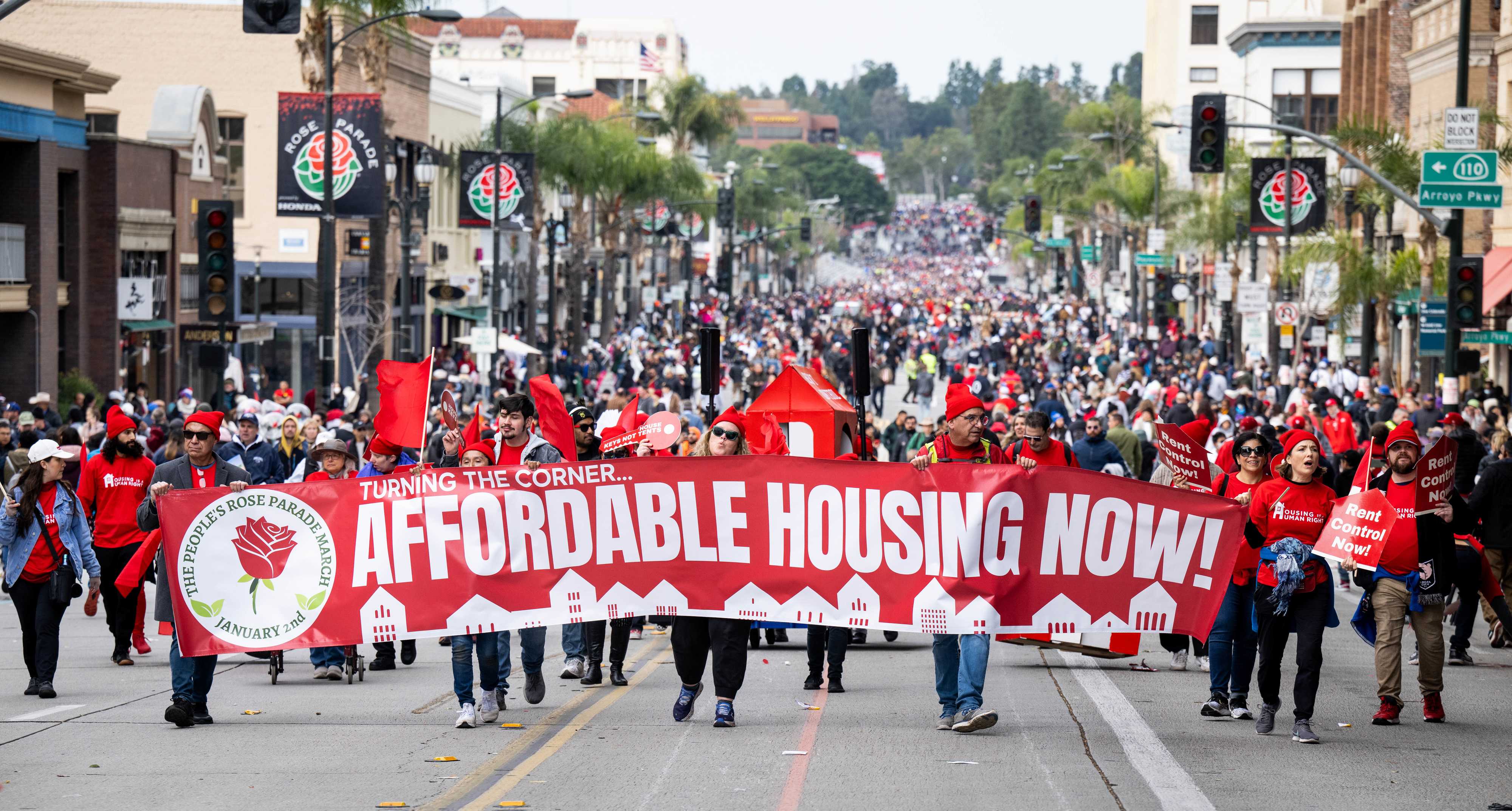As a child of the late 20th century, I grew up on a vision of the American dream that always included a house in the suburbs (2.5 kids and golden retriever sold separately). But as an adult in the 2020s, that dream has never looked further away.
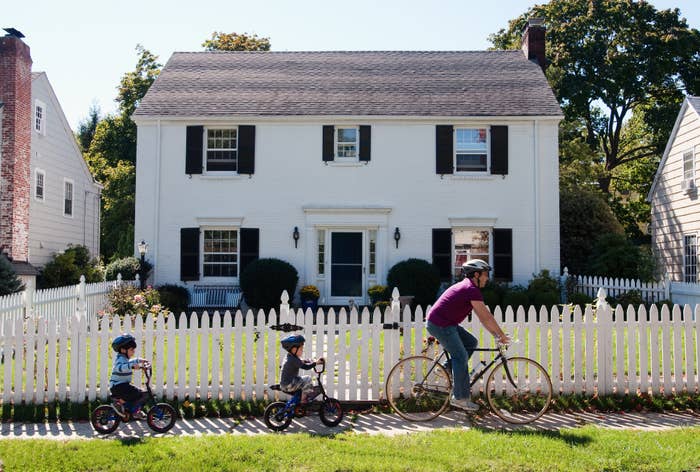
However, after learning more about the problems that suburbs cause for both urban and rural areas, I think it might be time to retire the old American dream and get to work on building a new one. Recently, urbanist Jon Jon Wesolowski (aka @jonjon.mp4 on TikTok) shared a video breaking down why suburban developments are actually incredibly problematic, and it's eye-opening.
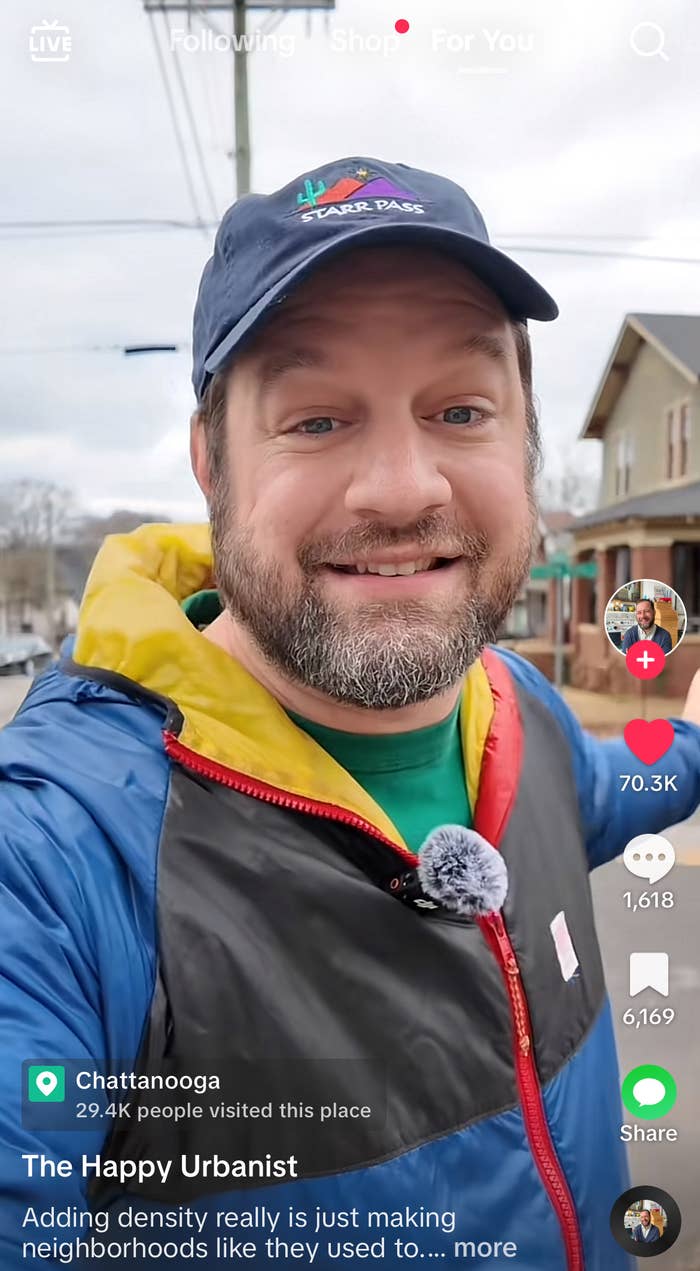
In his video, Wesolowski makes a strong case that urban and rural areas support each other, while suburbs create a drain on both. He explains, "Cities are the driver of economic development, technology and innovation, culture and the arts. And as such, they pay for and subsidize the infrastructure for rural areas. But that's okay, 'cause rural areas are where we get our agricultural surplus, which allow for cities in the first place."
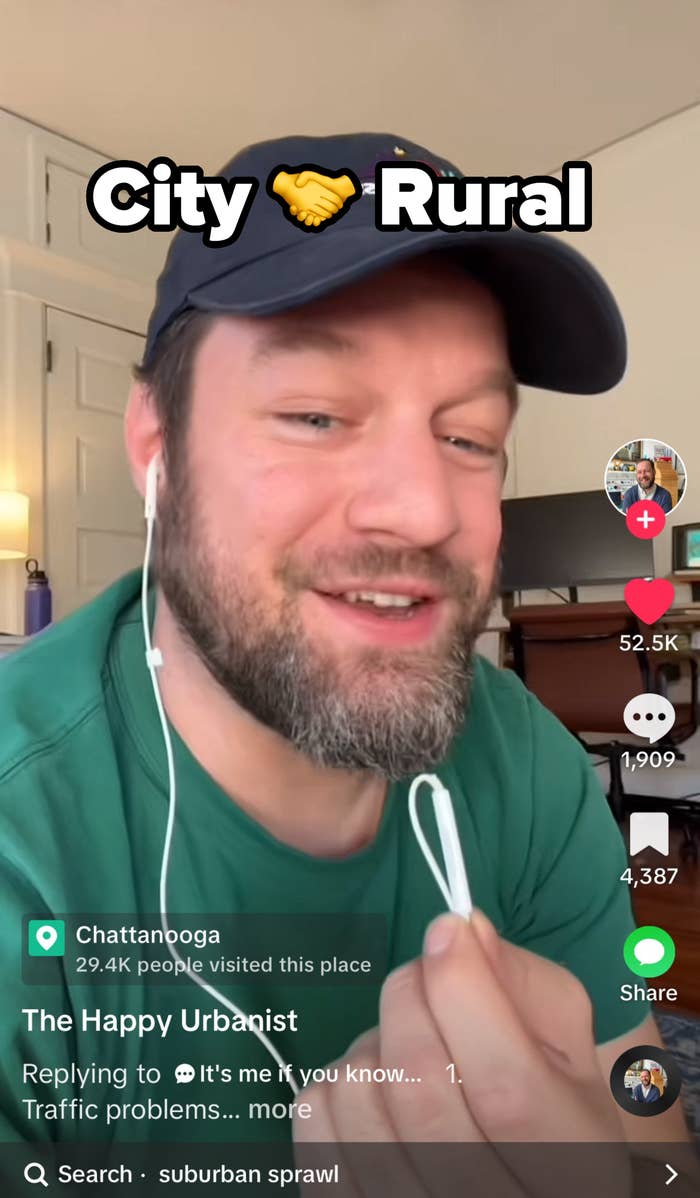
Wesolowski goes on to argue that the infrastructure needed to support suburban developments (think: roads, streetlights, utilities, etc.) is heavily subsidized by both urban and rural residents because the suburbs don't produce enough tax revenue to foot their bills.
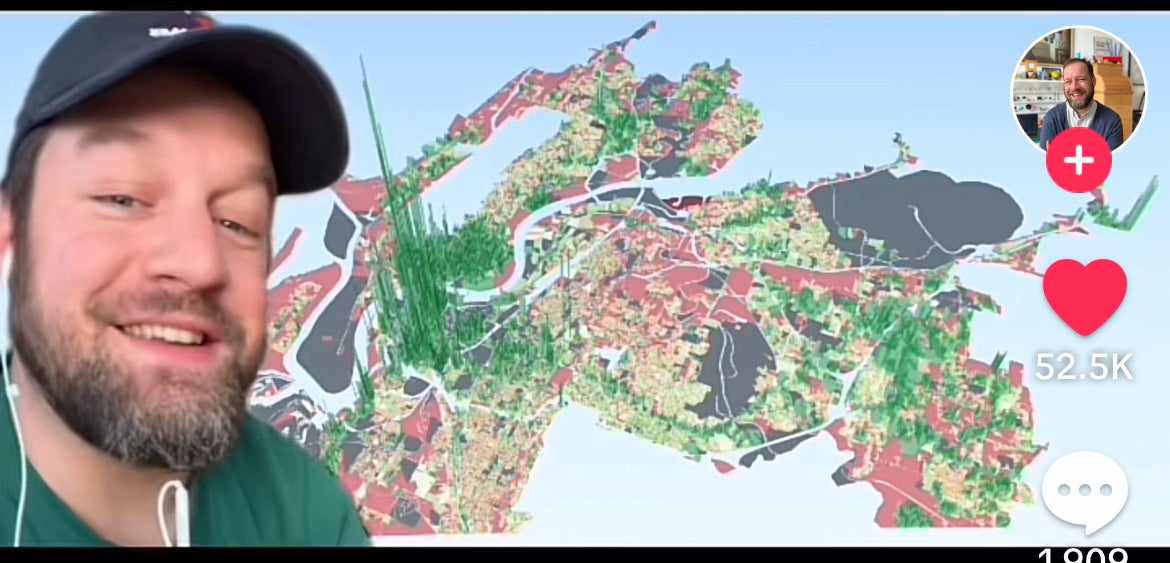
In many American cities, exclusionary zoning laws that favor single-family homes dictate what kinds of housing can be built. Wesolowski argues that these laws cause "cities to sprawl out and to grow, which means a typical American city like Nashville — although a similar population to Barcelona — is 13 times the size. Think 13 times the length of roads, power lines, sewer lines, and without agricultural output to go along with it."
He says that all this suburban infrastructure is "bankrupting cities." In fact, in 2015, Vox reported that suburban sprawl was costing the US $1 trillion every year.
Even worse, struggling cities continue to build more new suburban developments for quick hits of cash, a habit Wesolowski likens to a Ponzi scheme.
In the cities, the financial drain of footing the bill for suburban sprawl can lead to ever-worsening infrastructure problems. For example, Wesolowski says, "In my city of Chattanooga, we have 2,400 lane miles of road. We only can afford to replace 60 a year, and that's with federal grants."
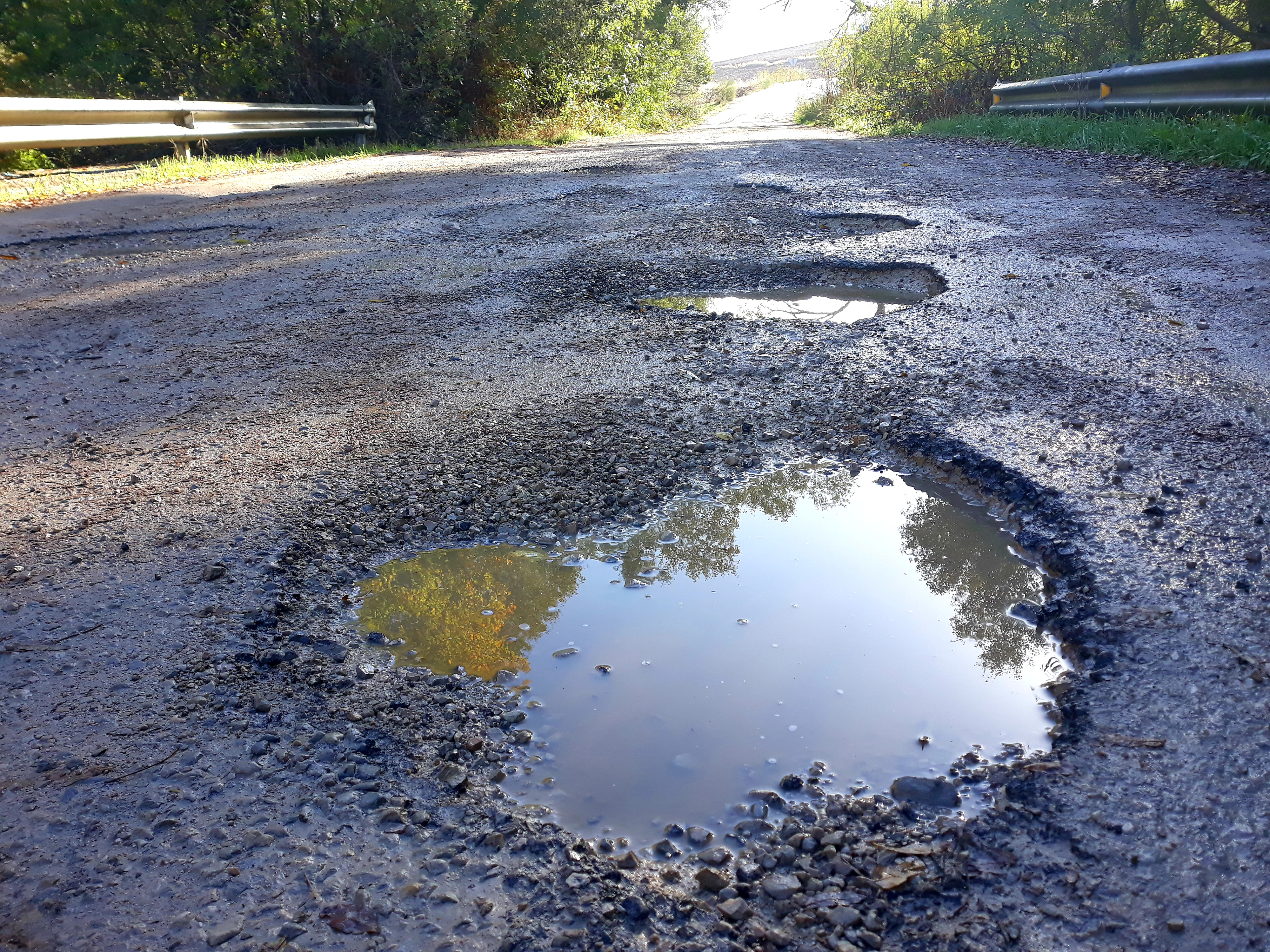
Suburban developments also make it harder for small, independent farms to gain a foothold. "All this encroaching on the farmland increases the price of farmland for farmers, meaning it's a lot harder to be a hobby farmer or a mom-and-pop operation."
According to a report from AgAmerica, farmland prices have risen 40% over the last 10 years.
Essentially, Wesolowski says, "All suburbs cost the same as gated communities. The difference between a suburb and a gated community is that you're forcing other people to foot the bill."
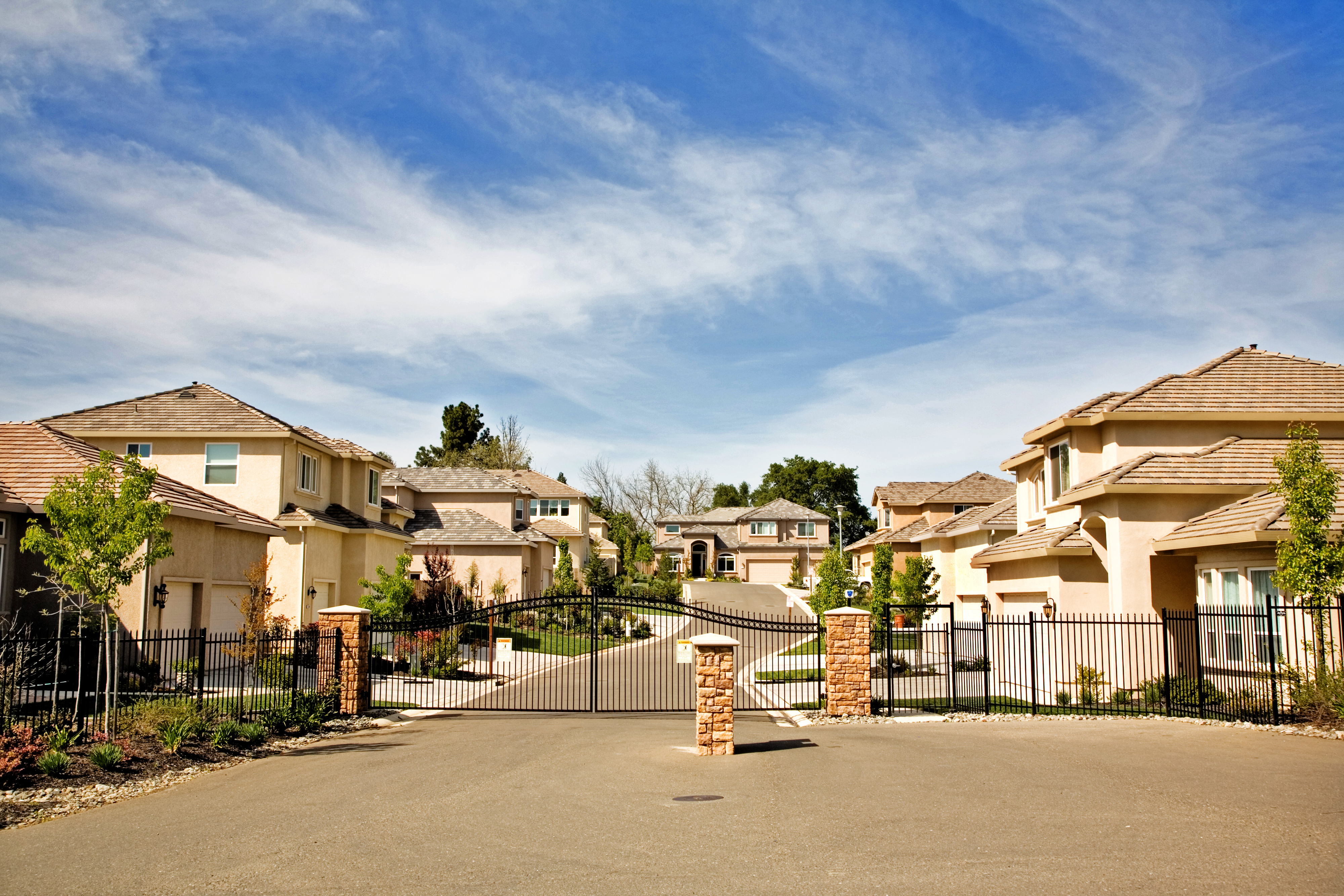
He explains, "I'm not saying single-family housing should be outlawed. I'm saying we should loosen the laws to allow for other dense forms of housing and mixed-use development. This is good for farmers, as our cities would take up less space. This is good for people who can afford to and want to live in rural areas. It makes it more affordable."
He says this would also help cities "because the reason it's so expensive to live downtown is that downtown is synthetically being held back by exclusionary zoning laws. More places like downtown would develop if we just allowed it."
He sums it up by saying, "In short: As a farmer, you should appreciate cities. As a city dweller, you should appreciate rural areas. But single-family homes and suburbs are a luxury, and we shouldn't be forcing society to subsidize this luxury."
In the comments, people are sharing how they've seen these dynamics play out in their own experience.

And debating the merits of the suburbs in general. Who knew suburbs could be so polarizing?
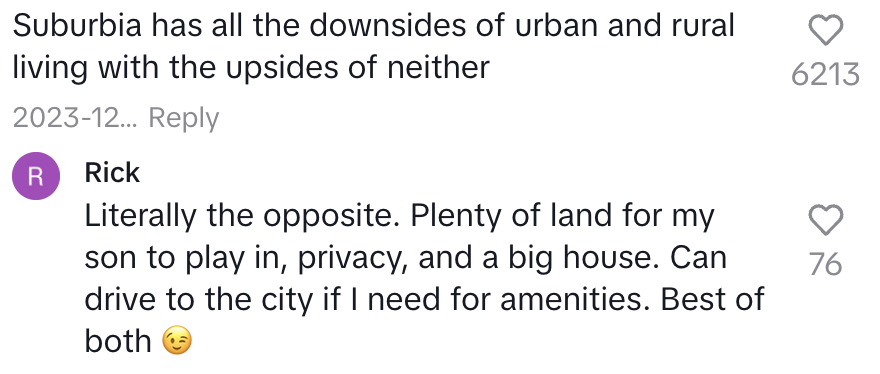
Wesolowski told BuzzFeed that he's not surprised people are so divided when it comes to the value of suburbs. "The suburbs are, for most cities, the only legal housing option; it's the only thing people know!" he explained. "The people who enjoy them, knowing nothing else, think they're great. But those who feel the adverse effects feel especially negative because there are no other options."
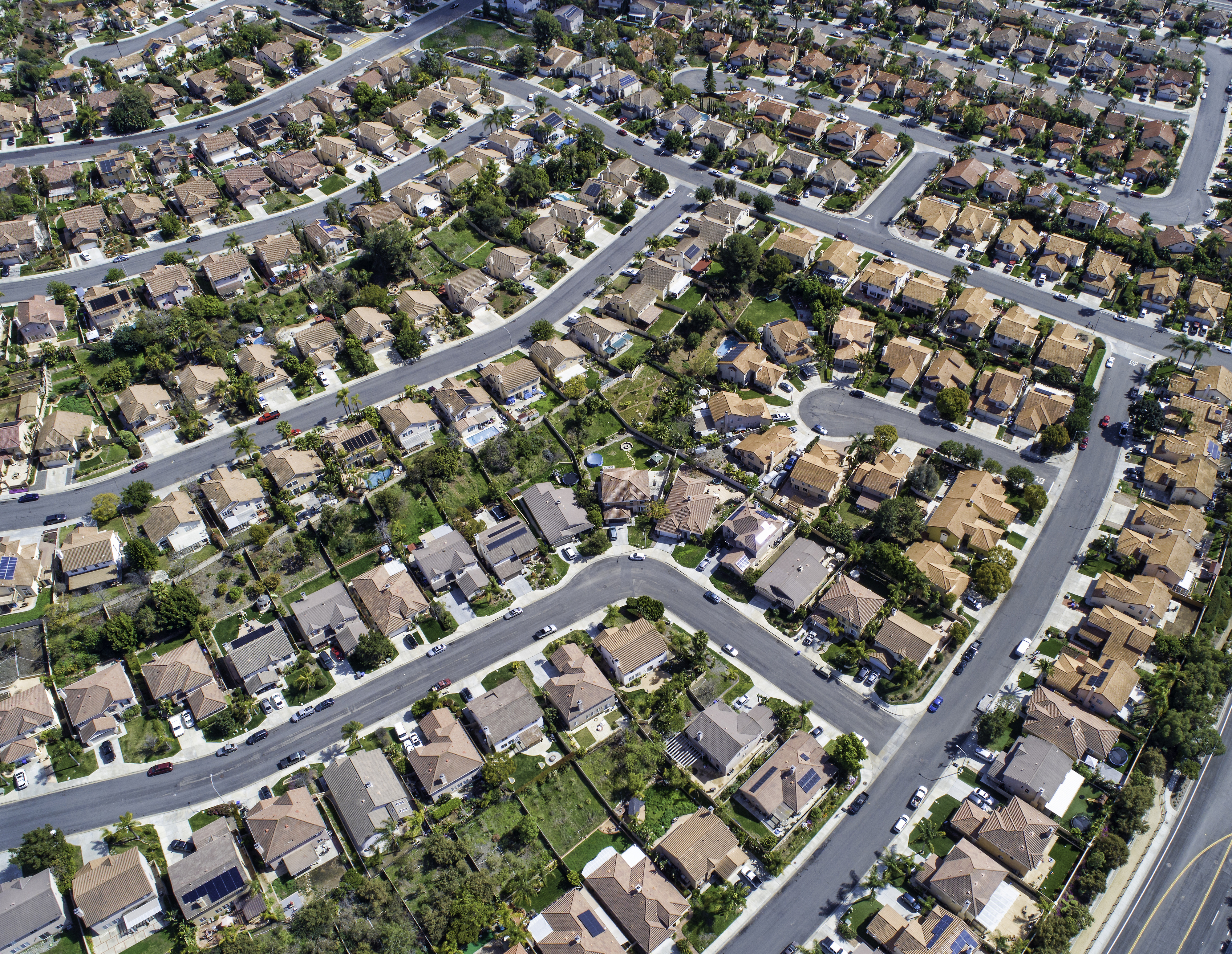
Housing is an especially frustrating political issue because it's so local, and many of us tend to be less engaged in our local politics than we are in national issues. If you're interested in advocating for more affordable housing in your area, Wesolowski advises, "The first and most important thing is to show up. Going to city council meetings will feel meaningless and boring at first, but showing up will acquaint you with the problems and potential problem solvers."
"Secondly, meet your officials! Email, call, arrange a one-on-one. Lastly, join an organization like Strong Towns to connect with other like-minded members."
Finally, he says, "The housing and transit problem isn't unique to a particular state or political party. The way we talk about these things will look different from state to state, city to city, and even neighborhood to neighborhood. While you might not be a political expert or a city planner, you know what your street needs! Don't be afraid to speak, because there is no one who knows your lived experience and neighborhood better than you."
